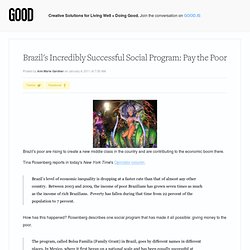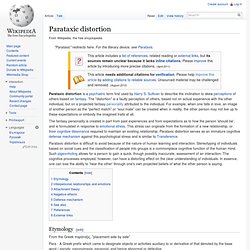

12.08.2009 - Social scientists build case for 'survival of the kindest' By Yasmin Anwar, Media Relations | 08 December 2009 BERKELEY — Researchers at the University of California, Berkeley, are challenging long-held beliefs that human beings are wired to be selfish.

In a wide range of studies, social scientists are amassing a growing body of evidence to show we are evolving to become more compassionate and collaborative in our quest to survive and thrive. (Photo illustration by Jonathan Payne) In contrast to "every man for himself" interpretations of Charles Darwin's theory of evolution by natural selection, Dacher Keltner, a UC Berkeley psychologist and author of "Born to be Good: The Science of a Meaningful Life," and his fellow social scientists are building the case that humans are successful as a species precisely because of our nurturing, altruistic and compassionate traits. They call it "survival of the kindest. " Hedgehog's dilemma.
Both Arthur Schopenhauer and Sigmund Freud have used this situation to describe what they feel is the state of individual in relation to others in society.

The hedgehog's dilemma suggests that despite goodwill, human intimacy cannot occur without substantial mutual harm, and what results is cautious behavior and weak relationships. With the hedgehog's dilemma, one is recommended to use moderation in affairs with others both because of self-interest, as well as out of consideration for others. The hedgehog's dilemma is used to explain introversion and isolationism.
Schopenhauer[edit] The concept originates in the following parable from the German philosopher Arthur Schopenhauer's Parerga und Paralipomena, Volume II, Chapter XXXI, Section 396:[1] Farewell. I expect this will be my last post for this blog.

Thank you to Psychology Today for providing this small soapbox and to you for reading. I am planning to take my Death with Dignity medication soon, unless I die spontaneously before then. Cpmanifesto2010_lowres.pdf (application/pdf Object) Those "socialist" countries? They're happy! I had to laugh as I read this article in Forbes magazine, of all places (OK, it was originally on Yahoo Travel): "World's Happiest Places: A new report reveals where people feel most positive about their lives" So America is #1, right?

Hmmm. You know those horrible "socialist" European countries that the wingnuts are always screeching about? They're hell, right? Imageskill-switches_small.jpg (650×471) Hipster: The Dead End of Western Civilization. Update Required To play the media you will need to either update your browser to a recent version or update your Flash plugin.

Audio version read by George Atherton – Right-click to download. Brazil's Incredibly Successful Social Program: Pay the Poor - Health. Brazil's poor are rising to create a new middle class in the country and are contributing to the economic boom there.

Tina Rosenberg reports in today's New York Time's Opiniator column: Brazil’s level of economic inequality is dropping at a faster rate than that of almost any other country. Between 2003 and 2009, the income of poor Brazilians has grown seven times as much as the income of rich Brazilians. Poverty has fallen during that time from 22 percent of the population to 7 percent. How has this happened? The program, called Bolsa Familia (Family Grant) in Brazil, goes by different names in different places. Rosenberg describes the program as the most important anti-poverty program the world has ever seen.
Parataxic distortion. Parataxic distortion is a psychiatric term first used by Harry S.

Sullivan to describe the inclination to skew perceptions of others based on fantasy. The "distortion" is a faulty perception of others, based not on actual experience with the other individual, but on a projected fantasy personality attributed to the individual. For example, when one falls in love, an image of another person as the “perfect match” or “soul mate” can be created when in reality, the other person may not live up to these expectations or embody the imagined traits at all. The fantasy personality is created in part from past experiences and from expectations as to how the person 'should be', and is formulated in response to emotional stress. This stress can originate from the formation of a new relationship, or from cognitive dissonance required to maintain an existing relationship.
Parataxic distortion is difficult to avoid because of the nature of human learning and interaction. Etymology[edit] See also[edit] The Empathic Civilisation. Population.jpg (1000×6494) Chinese Commercial Law Books In English. The Good Ones. : China Law Blog : China Law for Business. Clients (particularly those involved with Human Resources) and law students are always asking me what English language books I recommend for learning about Chinese law.

Many years ago, I would tell them there were none. Now I usually respond with the following four: 1. The Legal System of the People’s Republic of China in a Nutshell. Yes, this is part of West’s Nutshell series, but before you law students and lawyers start keeling over in laughter, let me explain. I advocate reading nutshell books because they are a superb and fast and relatively painless way to get a big picture view of a topic. The China nutshell (I read a previous edition a long long time ago) does a great job of giving its readers a feel for Chinese law and a quick read of it will help you immeasurably in thinking like a Chinese lawyer.
It is written by Daniel C.K. 2. 3. I am three-quarters of the way through the book, Understanding Labor and Employment Law in China, by Ronald C. An 18th Century Quote Defines Todays Truth. “Don’t be deceived when they tell you things are better now.

Even if there’s no poverty to be seen because the poverty’s been hidden. Must See: Software programmer says - under oath - that US elections are rigged and that US Representatives tried to pay him to rig their election vote counts (you won't see this on CNN) The Gentle Art of Saying No. It’s a simple fact that you can never be productive if you take on too many commitments — you simply spread yourself too thin and will not be able to get anything done, at least not well or on time.

But requests for your time are coming in all the time — through phone, email, IM or in person. To stay productive, and minimize stress, you have to learn the Gentle Art of Saying No — an art that many people have problems with. What’s so hard about saying no? 7 Modern Dictators Way Crazier Than You Thought Possible. History is loaded with power-hungry dickweeds who rule over their countries' fearful populations like the Predator in a laser tag match.
Oftentimes these people are infamous not just for their cruelty, but also for their bafflingly insane and self-indulgent antics. Francois Duvalier -- President for Life of Haiti. Music & Life. Jeremy Rifkin on "the empathic civilization" Guide to flirting. Why do we flirt? Flirting is much more than just a bit of fun: it is a universal and essential aspect of human interaction. Anthropological research shows that flirting is to be found, in some form, in all cultures and societies around the world. Flirting is a basic instinct, part of human nature.